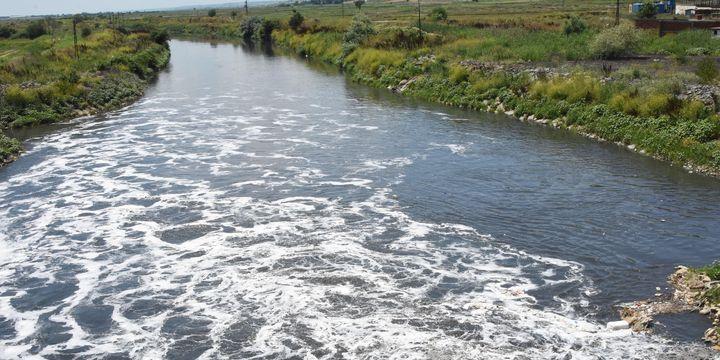
Seventy-nine percent of freshwater bodies are polluted, the Chamber of Environmental Engineers has said in its report marking World Environment Day on June 5.
“Our freshwater bodies in Turkey are under serious threat. Some 79 percent of surface waters, streams, and lakes have been polluted. Of this figure, 60 percent represents the water that cannot be used for drinking water [due to the level of pollution],” said chamber head Baran Bozoğlu, while announcing the report’s results on June 4 in a meeting in the capital Ankara.
Bozoğlu said especially the rivers of the Greater (“Büyük”) Menderes, Sakarya, Susurluk, Little (“Küçük”) Meander, Gediz, Bakırçayı, and Ergene were very polluted, having turned into an “open canalization” system.
Turkey is also not utilizing 99 percent of freshwater bodies, which have a potential to be reused through refinement, Bozoğlu said. And foremost, the pollution in our seas in the Aegean provinces of Muğla and İzmir, the Mediterranean province of Mersin, and Istanbul are worsening, according to the head of the Chamber of Environmental Engineers, a member chamber of the Ankara-based Union of Chambers of Turkish Engineers and Architects (TMMOB).
The report also drew attention to the limited number of waste water treatment facilities in organized industrial zones across Turkey, indicating that only 44 percent of the total 186 organized industrial zones in the country were equipped with these facilities.
Another issue that was pointed out by the report was the country’s failure to recycle plastic products, which are contributing to the destruction of water ecosystems.
“A total of 8.6 million tons of plastics [per year] are being used up in various sectors of Turkey. Some 1.8 million tons of plastic packages are released into the market, and only 384,000 tons of these, i.e. 21 percent, are accumulated back [for recycling],” Bozoğlu said.
The chamber’s report also touched upon air pollution, saying Turkey ranks 22nd among European countries in air-pollution related deaths, with 4.7 percent of total deaths in the country attributable to air pollution.
Ankara, Istanbul, the southern province of Adana, the northern province of Amasya, and the western province of Bursa are the places that air quality is a big concern. Heating houses, cars, thermal power plants, and mining and industrial enterprises have been indicated as the major causes of air pollution in Turkey.
The report has additionally touched upon flood disasters in Turkey, saying the Black Sea region was the region among six others that was “the most affected from food disasters.” In 2016, the region experienced a total of 134 flood disasters, the report said, calling out for “an immediate climate action plan.”
World Environment Day occurs on June 5 every year, and is the United Nation’s principal vehicle for encouraging awareness and action for the protection of our environment. First held in 1974, it has been a flagship campaign for raising awareness on emerging environmental issues from marine pollution, human overpopulation, and global warming, to sustainable consumption and wildlife crime.